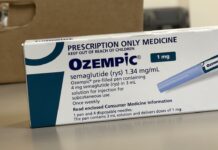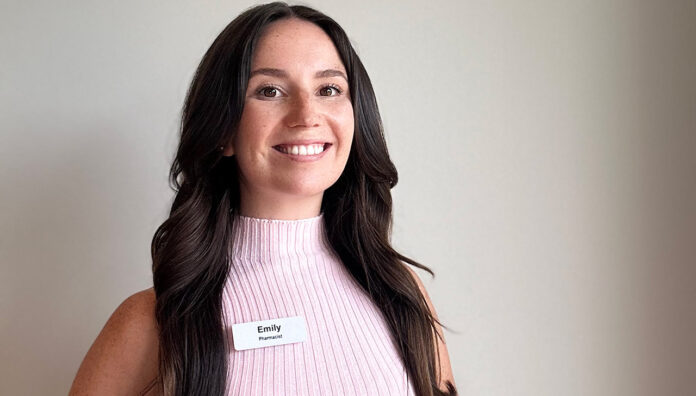On International Women’s Day (8 March), PSA Victorian Early Career Pharmacist of the Year Emily Griffin, delivered the keynote address to the Medication Safety and Efficiency Conference. This is the full transcript of her powerful speach.
According to the AHPRA 2022/2023 Report, our pharmacist profession is 64% female, and 36% male.
I’ll leave you to consider this statistic and we’ll come back to it later…
Good afternoon everyone, my name is Emily Griffin.
What an honour to be asked here today to speak about ‘Pathing the way for Future Pharmacists’ on International Women’s Day (IWD). Thank you so much Katrina for inviting me to speak here today as a strong woman presence who has made an impact in our sector. Saying that aloud is a little overwhelming in itself, and I do hope I can deliver on the expectations of this topic today.
It has been a fantastic conference, and it has been wonderful to meet and to listen to so many incredible people.
My pharmacy journey
I guess to talk about pathing the way, one must reflect on the journey. My pharmacy journey began half-way through year 12 when I went for work experience down the road at a community pharmacy in Bendigo, in regional Victoria. I really had no idea what I wanted to do after year 12 before this placement. But through the patient-centred care provided by this local pharmacy and the sense of community it created showed me the impact pharmacists can have on people’s lives – I was persuaded. I guess that’s where the whirlwind journey started.
I was given scholarships to attend La Trobe Bendigo, I was involved with the Bendigo Association of Pharmacy Students, I attended NAPSA congresses and helped organise one. I moved 100 km away for an intern role in Echuca, rural Victoria, (the manager there was so inspiring, I felt I just had to move there for this role).
I stayed there for a few years working in various areas including general medicines, palliative care, and oncology. Then I moved to Melbourne, and shortly after, I moved into the role where I co-built the Australian first Voluntary Assisted Dying Statewide Pharmacy Service (we’ll talk more about this soon), while working concurrently in general medicine, oncology, and acute and emergency medicine, to name a few specialties.
I started my pharmacy consultancy business. Meanwhile in the background I was studying for a total of 11 consecutive years since school. I now work across practice settings in some really cool pharmacist roles (I’ll tell you about my current roles shortly), and through promoting health and advocating for pharmacists and positive workplace cultures. I have been interviewed by national and international pharmacy journals and magazines. I was recently awarded the Early Career Pharmacist of the year for Victoria by the Pharmaceutical Society of Australia to recognise my contributions to the pharmacy profession. Thank you to the Pharmaceutical Society of Australia. I was recently contracted as an expert in my field of
consultant pharmacy to develop a Training Program for Pharmacists to be credentialed as Medication Management Review Pharmacists. And now, I’ve been asked to speak to you here today about my learnings from co-building the Voluntary Assisted Dying Statewide Pharmacy Service and positive workplace cultures.
My current roles
I guess you might be wondering what I do for work: briefly – I run my own pharmacy consultancy business. I offer home medicines reviews, and other consulting and professional services. I’m also a pharmacist at a tertiary hospital in Melbourne. I also work with a university in a few roles – in their pharmacy school I am a teaching associate – in that role I work within the Master of Clinical Pharmacy (post grad) degree. I do marking and moderating in this role. I also work in the undergraduate pharmacy degree as a skills coach.
My other role in the university world is as a lecturer in the rural health school – I am employed as the Rural Pharmacy Liaison Officer for the state of Victoria. My role is to promote and support the rural pharmacy workforce; I’m working on a number of different projects at the moment. In my spare time I promote health, and advocate for pharmacists and positive workplace cultures in the community and on social media. I’m in my eighth year of being a pharmacist if you were curious.
I think saying yes to most opportunities and my ability to develop or redevelop systems and services for efficiency is what has allowed me to have so much experience and impact so early in my career, and it has allowed me to build my unique balance of pharmacist roles I love.
As requested, I’ll tell you more about building the VAD statewide pharmacy service.
Building Australia’s first VAD service
I had recently moved from rural Victoria to Melbourne, and I had started a new role at a hospital in Melbourne. I was the Undergraduate Coordinator for the pharmacy department; I organised the pharmacy student placements at the hospital, and I was also working in General Medicine.
Within the first couple of months of starting, there was a pharmacy staff forum about VAD. I noticed the focus of pharmacists’ questions at this forum were all related to the storage of the medication and all the potential problems with the legislation and service. I felt I was on a different page during this forum – my focus was how we could deliver a compassionate, equitable, patient-centred novel service to the entire state.
For me, it wasn’t just a question of the legislation or individual or group opinions on the topic. To me, it seemed inevitable this sort of legislation would eventuate in Australia, given it had been available overseas for many years. I work in healthcare because I want to provide care to people. From my perspective, if VAD was an end-of-life care option people wanted access to (and was now legalised), then, the healthcare system had to adapt.
In my opinion, the focus of this new legislation and service was ensuring a patient-centred service of the highest standard was created and delivered. (Yes, storage and risk management were also extremely important and are heavily ingrained in the service).
I applied for the Senior Pharmacist VAD role because I thought if I had these ideas about how a service should be built and run, then I should not sit back and watch it all unfold, I should put my hand up to build, develop, and implement it. I knew I had the skills to create a really high-quality patient-centred service. I was successful in my application and interview. I was appointed to the role at the end of March 2019 and we were expected to be seeing patients by 19 June 2019.
I created and co-authored guidelines and processes including a Patient Information Booklet, Visit Guides, risk management and safety processes, sourced inventory and designed customised products, created inventory control and ordering processes, resources for the Department of Health, education material for other health professionals, a Pharmacist Credentialing Program, reflective activities for staff wellbeing, and designed feedback and evaluation opportunities for patients, families, and coordinating or administering medical practitioners. All the rigorous processes and documentation ensures a high standard for patient care and education, and consistency and documentation for assessing a patient’s safety, suitability, and medical decision-making.
All those documents I created and co-authored were shared with the other states of Australia to build their own pharmacy services and the pharmacist credentialing program was used to credential those pharmacists. It’s pretty surreal to look back now and realise what an epic achievement building an Australian-first service was.
I resigned from the VAD role mid last year (2023) after almost 4.5 years dedicated to the service. I loved the role but it was time to take on new opportunities and challenge myself again.
Learnings from my career
I’m going to share with you four valuable learnings:
Learning point 1
I’ve called this learning point “savouring special moments” and, in the words of Richard Carlson’s little book that my dad had in the cupboard, but I never really understood growing up… “don’t sweat the small stuff”…
I’ve visited patients, doctors, and health services across the entire state of Victoria. I’ve had some unbelievable experiences ranging from the immense gratitude from patients and lovedones and attending live wakes, to experiencing firsthand the hostility of people opposing the legislation.
I’ve had a lot of experience with death and with cancer in my personal life. These experiences force you to be older and wiser. I think having experienced loved ones in the health system, it made me more determined to deliver an exceptional pharmacist service.
Sometimes in healthcare it can be easy to forget that there are human beings at the end of every decision we make. I always try to put myself in my patients’ or their loved ones’ shoes; I ask myself what my expectation of the pharmacist service would be in this situation. I believe that’s the standard everyone in healthcare should be working to.
Working in highly emotive and high-risk areas, particularly VAD, gives you a unique perspective on life. Stressing about minor day-to-day things really seems stupid when your daily work life sees you travelling around the state caring for and providing education to patients who are dying or often, imminently dying.
Some of the most touching moments working in the VAD role have been the privilege of a patient sharing a reflection or some memories during the visit – people were often very reflective as you can imagine. Some of the most special chats with people were about their loved ones. Often, if it was a couple, they would tell a story about their relationship, for example when they met, or how long they had been together.
Sometimes I would ask ‘what’s the secret to staying together so long?’ Sometimes their responses were tear-jerking, sometimes they were very funny. I guess these experiences showed me that every day is significant, and to not stress about the small things. It is something I remind myself of every day, because it is easy to get caught up in the daily stressors of life.
This first learning ties in nicely to my second learning point I’d like to share with you. Working in VAD not only showed me how important it is to not sweat the small stuff and to savour special moments, the experiences also made me less patient and less tolerant to people who choose to make someone else’s precious time on this earth difficult.
Learning point 2
My second learning point is to savour special moments, and don’t sweat the small stuff.
Having worked in a toxic workplace, I’m trying to be an advocate for change here. Healthcare professionals deserve to be treated with the same care and compassion that we should be providing to our patients.
Finding workplace cultures that are welcoming, compassionate, and respectful which are much better aligned with my personal values and how I like to deliver patient care also has been a game changer for my career, and my happiness.
I saw a statistic just the other day – according to a workforce wellbeing survey by the Royal Pharmaceutical Society – 25% of pharmacists have experienced verbal abuse from a colleague or manager within the workplace. I’d just like to highlight that this is verbal abuse only – this doesn’t include other toxic or bullying behaviours from colleagues or managers including harassment via emails, constant nit-picking of work, physical abuse, or sexual harassment.
Dreading going to work out of fear for how you will be treated by your manager or co-workers that day, panic or anxiety attacks on the way to work because of the way you are being mistreated in a workplace, dealing with a workplace that chooses not to take bullying and harassment seriously, or worse, tries to blame, threaten, or silence you – are all very seriously wrong. It is not ok to feel like this, and it is not ok to be treated like this.
One of the worst parts of toxic workplaces is – you will probably try to defend that workplace’s culture and behaviour and you probably won’t fully realise the detrimental effects a toxic workplace is having on you until you have left. Similarly, you probably won’t realise the positive effects of a positive workplace culture on you until you have experienced them after such a horrible experience. I sincerely hope no one else in this room or in this conference has had a similar experience, but I’d be pretty confident to say I am not alone in mine.
This learning point ties into my biggest pieces of advice to other pharmacists – a workplace culture has a huge impact on you, so it’s best to find one that aligns with your personal values and not to be afraid to say goodbye to workplaces that don’t!
As pharmacists, we also have a huge impact on the next generation of pharmacists and the future of our pharmacy profession. It is our duty to inspire them, it is our duty to support them. And, it certainly is our duty to model and build the positive workplace culture of tomorrow.
The next generation of pharmacists are strong minded, they know what they want, and they know how they deserve to be treated. They know what constitutes reasonable behaviour, and they know what bullying and harassment is. I know the next generation won’t stand for such behaviour.
If you are in such a workplace, I do believe you have the duty to stand up to the toxic behaviours – whether you are witnessing them, or whether you are experiencing them. The more people speaking up about it, the less people can be silenced about it.
I’d also like to highlight here – leaving a toxic workplace is not a sign that you have been defeated regardless of whether or not you stood up to its culture and whether or not you were able to change that culture. Leaving a toxic workplace is a sign of courage, a sign of your values, and a sign of your stance on such behaviour.
I believe positive workplace cultures allow us to deliver better care – and improve safety and efficiency.
Learning point 3
The third learning point I’d like to share with you relates to supporting others, and sharing information and resources.
I believe sharing and supporting other services builds stronger communities and systems.
Just like in the VAD service when we shared our creations, resources, and processes with the rest of Australia in order to share a vision and level of consistency in services across the country, I believe this is transferable across services. In particular, the dynamic between metropolitan services and rural health services…
Having grown up, studied, and practised in regional and rural Victoria, I have observed and faced first-hand the challenges of rural pharmacy. Now working predominantly in metropolitan Melbourne, my role as the Rural Pharmacy Liaison Officer for Victoria allows me to continue to give back to rural and regional Victoria even though I am not living there at the moment. This role allows me to travel around Victoria and connect with pharmacists currently working in rural and regional Victoria to find out their experiences first-hand. Unfortunately, times are pretty tough.
Staff shortages are a big issue I am hearing about at the moment. A community pharmacy I visited recently has reduced their team of two pharmacists to just one due to the cost, and a rural hospital pharmacy department I recently visited is unable to fill a pharmacist role for their emergency department, their mental health service, nor a senior pharmacist for their oncology service. For a hospital to not have a pharmacist in these high-risk medication areas…that’s a serious concern for patient care.
I know healthcare is doing it tough in terms of filling vacancies in general at the moment, but the impact of staff shortages in rural areas is so much more significant. A gap of 2 equivalent full time (ETF or FTE) in a team may not seem like much – but in a rural pharmacy team of 8 EFT, it is a 25% gap in their department. If there was a 25% EFT gap in our metropolitan counterparts, for example 25 EFT from a department of 100 EFT or 75 EFT from a department of 300 EFT(!) …there’d be some serious action.
There’s more we can be doing to support, strengthen, and promote the rural and regional pharmacy workforce (and healthcare in general). Unfortunately, in my experience, supporting and helping rural pharmacy is not really on the radar in metropolitan areas in Victoria.
At the end of the day, healthcare is about providing people with the best patient-centred care possible… The health of people in rural and regional areas is just as important as the health and care of people in metropolitan areas.
I believe sharing resources with and supporting rural pharmacy services should be a top priority for our government, our metropolitan counterparts, and our education system.
Our metropolitan services could help and support our rural pharmacy services by helping fill roles in their pharmacies and departments.
Here’s some ideas:
- Our metropolitan and rural services could participate in a pharmacist exchange program. Such a program may allow for upskilling, exposure to other health conditions and medication management, and increased awareness for both the metropolitan and rural pharmacists.
- Alternatively, perhaps as part of employment in the metropolitan areas, pharmacists are rotated through a rural stint. I understand there is a similar system here in NSW.
- For the longevity of rural pharmacy – rural community and hospital pharmacy placements should be mandated as part of pharmacy courses. If we are not sending pharmacy students for rural experiences, how can we expect them to consider it as a career option? Our entire future rural pharmacy workforce in Victoria cannot be expected to be filled by our regional pharmacy school that now only has ~15 graduates per year.
Imagining a hospital without a pharmacy department or service, or a town without a community pharmacy because they haven’t been a priority area is a concerning thought, and a very real possibility for some areas.
Learning point 4
My fourth and final learning point I’d like to share with you today relates back to IWD.
I am a strong and successful woman, and I believe there is enough strength and enough success in this world for all women.
This learning point is for all women and people identifying as women.
I think today is an important day of reflection. I am so grateful to have worked with and currently work with some incredibly strong, successful, and supportive women.
I think, in reflecting on today, it is also important to think about what we can do better. So, are you a woman supporting other women? Are you a man supporting women?
There’s this horrid thing in Australia called ‘tall poppy syndrome’ and it seems especially fierce among some groups of women. I’ve experienced this with women I have worked or studied or have been friends with.
I cannot say it loud enough: there is enough success for every woman. Another woman’s success will not take away from your own success.
Not celebrating another woman’s success, projecting your insecurities because of jealousy, becoming part of a toxic workplace culture, or trying to destroy someone else’s success is not the answer to finding your own success.
Women in power or leadership roles’ behaviours are even more important because their behaviours trickle down to the entire workplace.
Other reflective questions for today:
Other reflective questions for today:
- Do you feel uncomfortable when a woman speaks about her experiences or emotions?
- Do you judge a woman’s abilities based on what she’s wearing?
- What are your thoughts when your manager or leader is a woman, and when you are interviewing a woman for a role?
I am so grateful to have worked with so many supportive women and men in my career who also believe there is enough success for all women.
…Now, let’s go back to that statistic from earlier on. To remind you, in Australia, our pharmacist profession is 64% female, and 36% male.
I thought it would be fascinating to look into the women in leadership positions across Victoria. I decided to find out how many women are Directors of Pharmacy in public hospitals across the entire state. This took me about 3 hours; I had to call a lot of hospitals and departments and I called upon some contacts to help me find out this information. It wasn’t as readily available as I thought it was! I was determined to find out though, because I had a suspicion. And I’ll let you ponder for a moment about what that suspicion might have been…
Hands up – who thinks there are more women directors of pharmacy across the state of Victoria? (No hands!) Who thinks there are more men directors of pharmacy? (Everyone)
You would be correct – out of the 39 public hospital pharmacy departments I identified, there were 19 women directors of pharmacy… 48%. That’s less than half.
To break this down further – out of interest, because I wanted to see if this was true for rural and metro areas:
- metro was six women directors of pharmacy out of 15 pharmacy departments (40%)
- rural was 13 women directors of pharmacy out of 24 pharmacy departments (54%).
Now you might think – ‘a-ha Emily your suspicions were incorrect – rural pharmacy actually has more women directors of pharmacy!’ … but should this statistic not more accurately reflect the gender division in our profession?
Women, I encourage you here today to question this system – why, when 64% of pharmacists are women, do the statistics of our leadership roles not also reflect this? What can you do to change this? Perhaps you could go for that role the next time it crops up?
That thought brings us to the end. To recap my learnings that I think are pretty transferable across our profession and other professions here today, and across sectors, and also align with improving safety and efficiency in our workplaces:
- savour special moments and ‘don’t sweat the small stuff’
- your workplace culture has more of an impact on you than you think
- sharing and supporting other services builds stronger communities and systems; and
- there’s enough strength and enough success in this world and in the pharmacy profession for all women.
Thank you so much for giving me the opportunity to speak here today. I invite you to connect with me after the conference to speak about workplace cultures, pharmacist advocacy, rural health, or anything else pharmacy-related!
Thank you.




 This article was sponsored and developed in collaboration with PSA and Carers NSW[/caption]
However, pharmacists may perceive medication errors or non-adherence as a carer’s inability to fulfil this role,
This article was sponsored and developed in collaboration with PSA and Carers NSW[/caption]
However, pharmacists may perceive medication errors or non-adherence as a carer’s inability to fulfil this role,

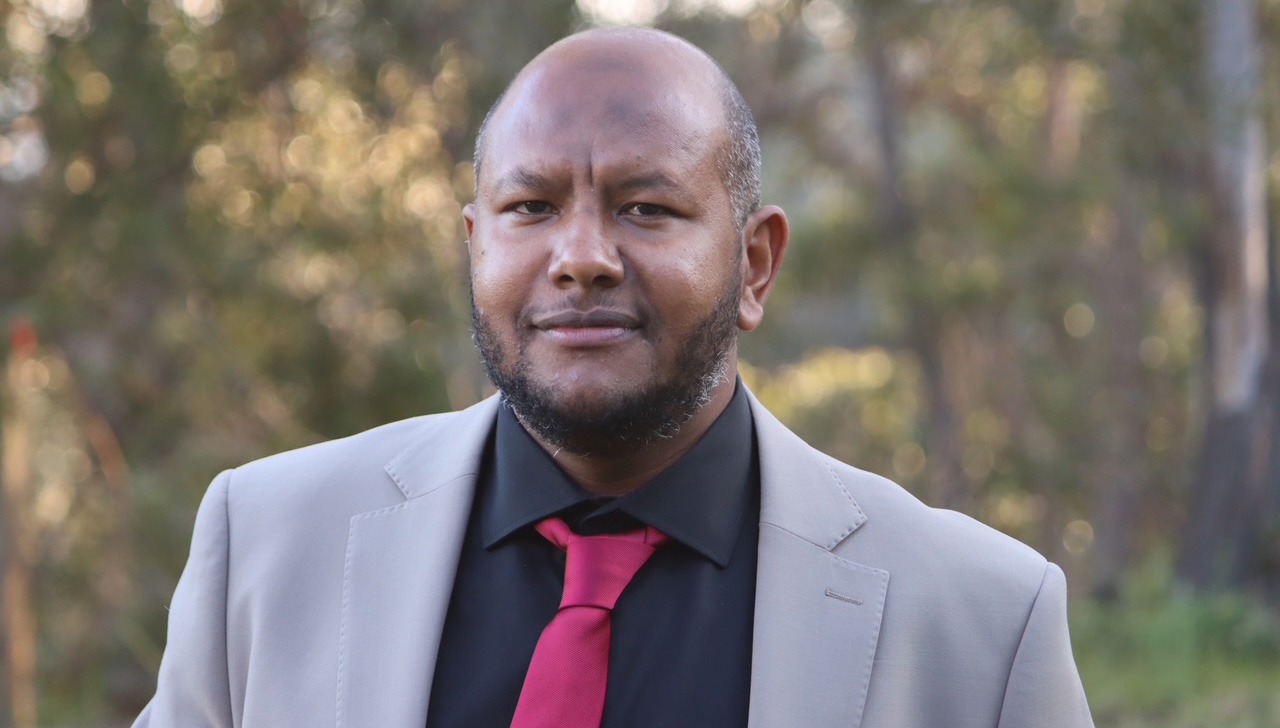 Now a PhD candidate, former Sudanese refugee and NSW Pharmacist of the Year
Now a PhD candidate, former Sudanese refugee and NSW Pharmacist of the Year 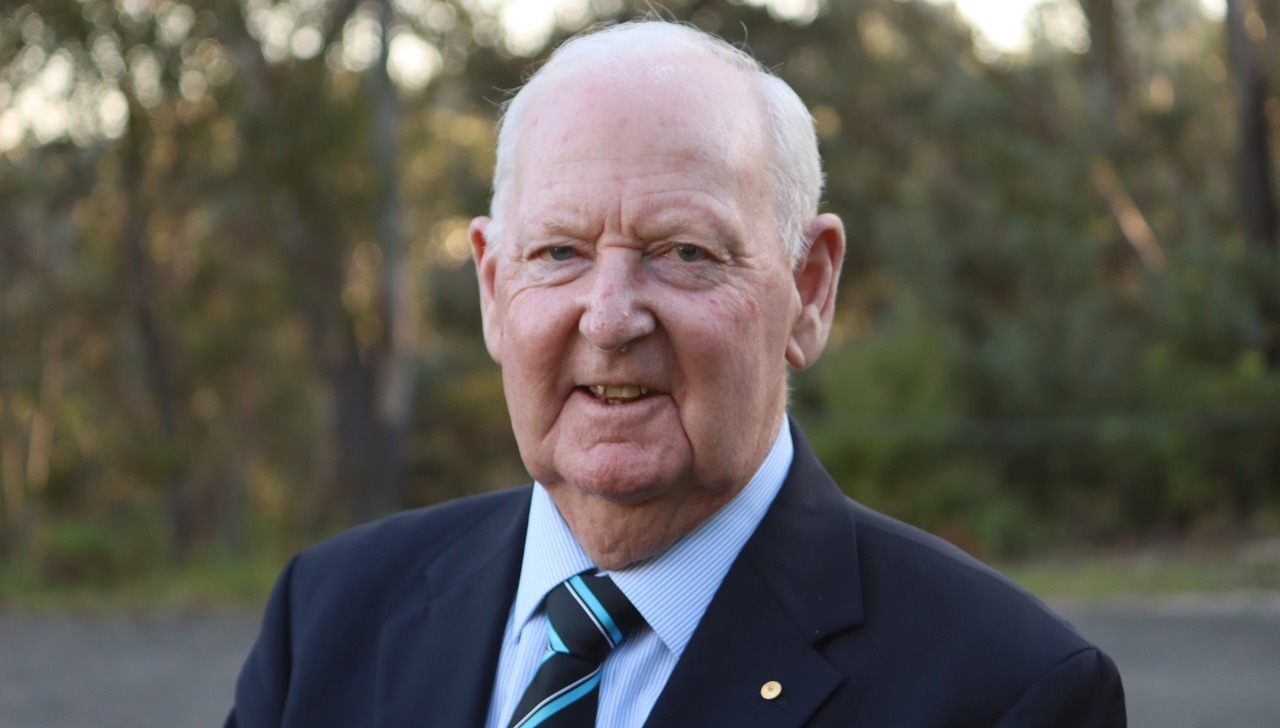 David North OAM
David North OAM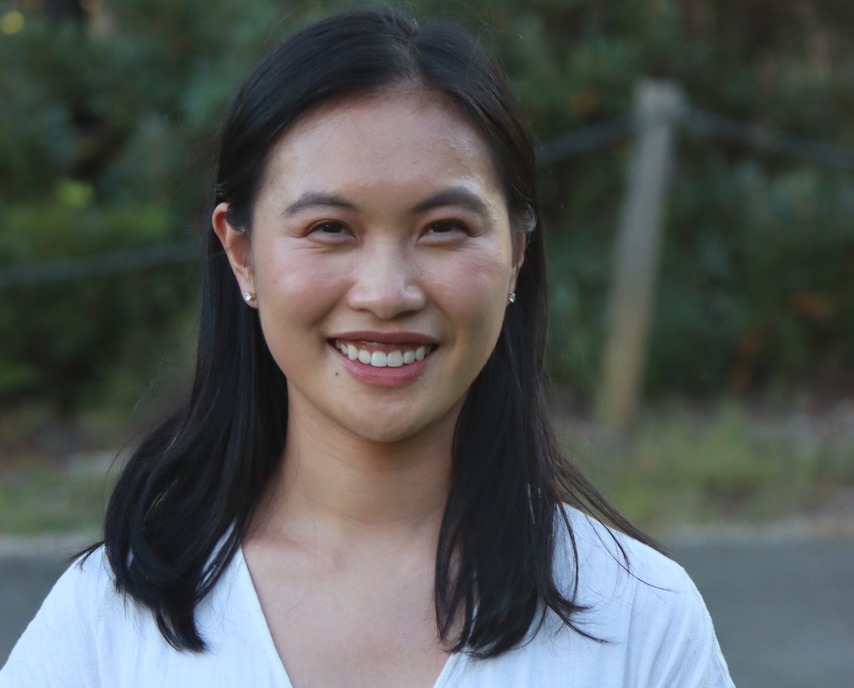 NSW Early Career Pharmacist of the Year Lily Pham
NSW Early Career Pharmacist of the Year Lily Pham